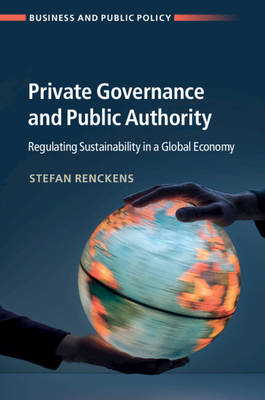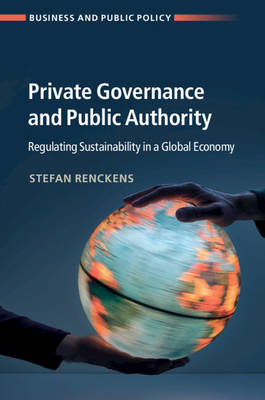
- Afhalen na 1 uur in een winkel met voorraad
- Gratis thuislevering in België vanaf € 30
- Ruim aanbod met 7 miljoen producten
- Afhalen na 1 uur in een winkel met voorraad
- Gratis thuislevering in België vanaf € 30
- Ruim aanbod met 7 miljoen producten
Zoeken
Private Governance and Public Authority
Regulating Sustainability in a Global Economy
Stefan Renckens
€ 47,95
+ 95 punten
Uitvoering
Omschrijving
At a time of significant concern about the sustainability of the global economy, businesses are eager to display responsible corporate practices. While rulemaking for these practices was once the prerogative of states, businesses and civil society actors are increasingly engaged in creating private rulemaking instruments, such as eco-labeling and certification schemes, to govern corporate behavior. When does a public authority intervene in such private governance and reassert the primacy of public policy? Renckens develops a new theory of public-private regulatory interactions and argues that when and how a public authority intervenes in private governance depends on the economic benefits to domestic producers that such intervention generates and the degree of fragmentation of private governance schemes. Drawing on European Union policymaking on organic agriculture, biofuels, fisheries, and fair trade, he exposes the political-economic conflicts between private and public rule makers and the strategic nature of regulating sustainability in a global economy.
Specificaties
Betrokkenen
- Auteur(s):
- Uitgeverij:
Inhoud
- Aantal bladzijden:
- 328
- Taal:
- Engels
- Reeks:
Eigenschappen
- Productcode (EAN):
- 9781108748483
- Verschijningsdatum:
- 23/06/2022
- Uitvoering:
- Paperback
- Formaat:
- Trade paperback (VS)
- Afmetingen:
- 152 mm x 229 mm
- Gewicht:
- 439 g

Alleen bij Standaard Boekhandel
+ 95 punten op je klantenkaart van Standaard Boekhandel
Beoordelingen
We publiceren alleen reviews die voldoen aan de voorwaarden voor reviews. Bekijk onze voorwaarden voor reviews.











